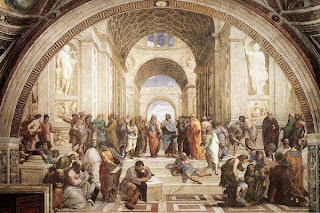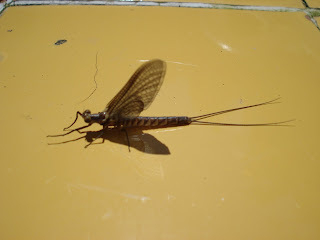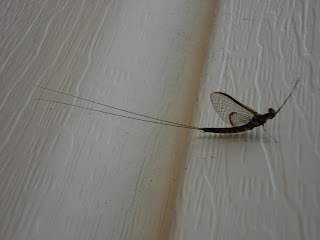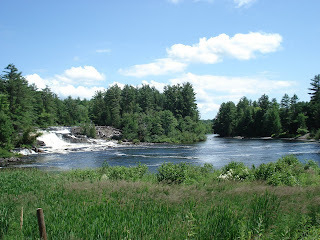Do Philosophy Classes Have "Labs"?
When I was preparing to go to grad school I was torn between two choices: Ph.D. in marine/riparian biology, or Ph.D. in philosophy? I love fish, aquatic invertebrates,
(well, most of them, anyway) and the environments they live in. Wouldn't it be great to make freestone streams and tidal pools into my classrooms?
But I also love philosophy. Philosophy has connections to every other discipline; it offers a unique perspective on human activities; and it promotes some of the most interesting and fruitful conversations I know of. (Yes, I admit some professional bias here, and don't begrudge others a similar bias towards what they love.) Philosophy classes take on questions about truth, value, meaning, religion, justice, science, language, reason, history, relationships, and much more. It can be very difficult, but there's usually a huge payoff for the effort you put into it.
Now that I teach philosophy, I often find myself lurking around the biology department at my school, to read their journals, to talk with the professors there (who patiently put up with my presence there), and to eye their labs with envy.
Now, I think bio labs are great places, but it's not the places themselves that I most like. It's rather the idea of the place. Labs are spaces set apart for learning by experience. We have labs for the sciences, and we have labs for the arts as well (though we usually call those "studios"). In the social sciences they use labs for observing human activities, and foreign languages have (or ought to have) labs for practicing language. Writers have workshops, historians have museums and archives, and other disciplines have internships.
Philosophy, unlike all these other disciplines, does not appear to have any labs at all. At least, not at first glance.
Partly this is due to the reflective nature of philosophy: philosophers have often understood our discipline as a step back from experience in order to gain a cool, disinterested view of the world. To some degree, we still think that, but that idea of having a privileged access to reality through the use of the right kind of language, or through a scientific worldview, has fallen under suspicion. Pace Descartes, we don't necessarily understand the world better by turning completely away from it.
Contrary to popular opinion, "philosophy" is not a synonym for "opinion." Nor is it a synonym for "doctrines." Philosophy has grown and changed quite a lot in the last few centuries, which means that is not always easy to define. One thing that is common to all philosophers, however, is that philosophy is an activity. Doing philosophy is not the mere rehearsal of past views, nor is it merely an attempt to present our already established opinions in clearer or more persuasive language.
Philosophers do, in fact, set aside spaces and times for practicing philosophy. One important kind of lab philosophers have is the seminar, which has its roots in Plato's practice of philosophy. Whatever else we might say about Plato, he knew how important good conversation is to advancing philosophy. In his dialogues, Plato uses conversation to illustrate two points: first, we need to spend at least some of our time in serious, sustained conversation and reflection with others. Second, when we do so, we need to follow the argument where it leads and not just where we want it to go.
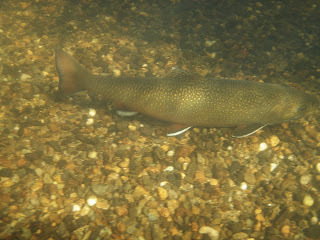 |
| A brook trout I photographed in Maine. |
*********************
[Images: Raphael's "School of Athens," showing famous Greek philosophers "at work"; two mayflies photgraphed in the summer of 2009 in Gravenhurst, Ontario; one of the tributaries to Lake Muskoka in Ontario; a brook trout photographed on the Magalloway River in Maine, 2009 while fishing and doing some research with Matt Dickerson. The Raphael image is in the public domain; the others are my own photos. I think mayflies are especially lovely creatures. The adult stage shown above is a very brief period of their lives; most of their lives are spent underwater, and their appearance is quite different then from what it is as adults.]
